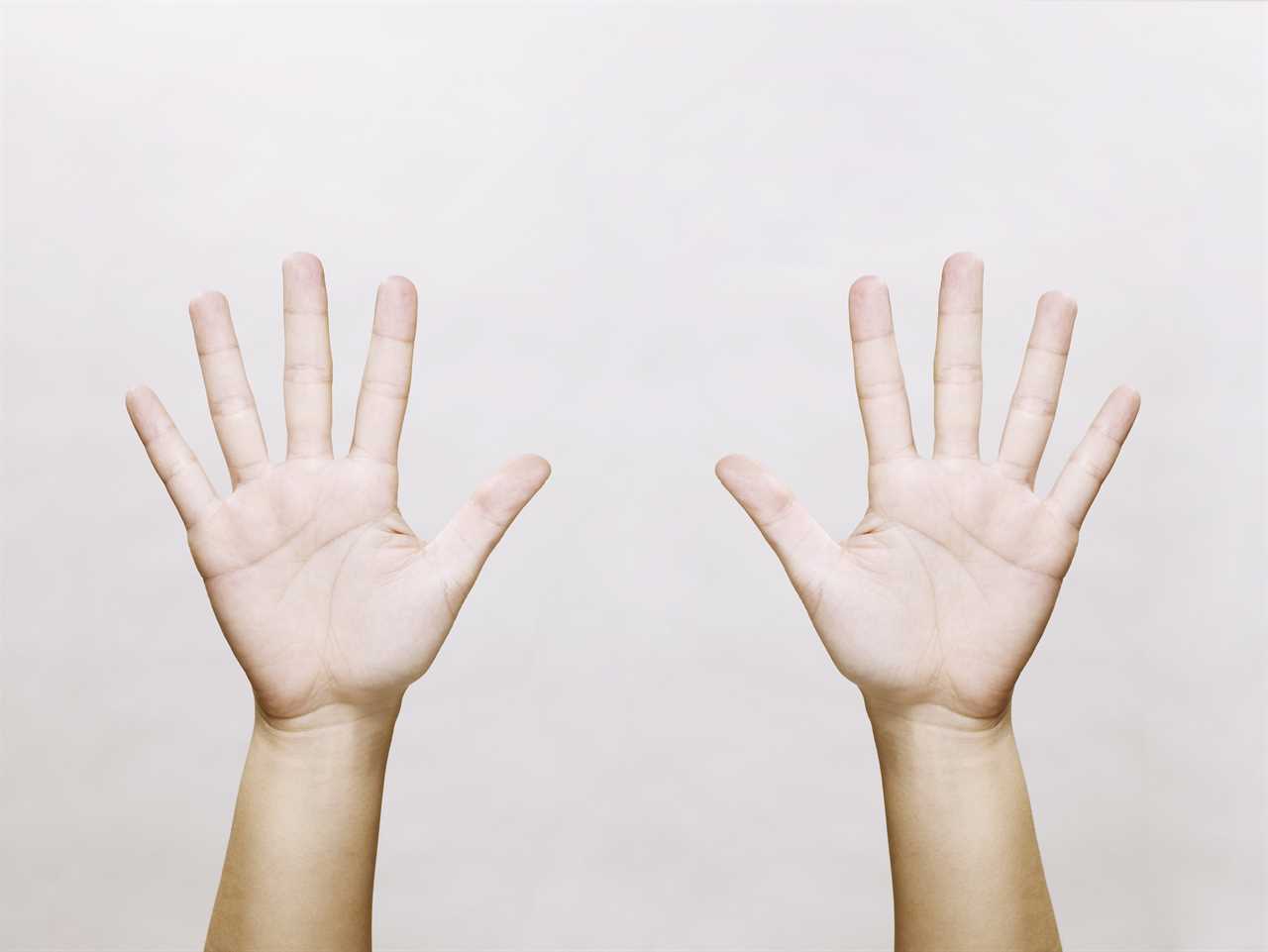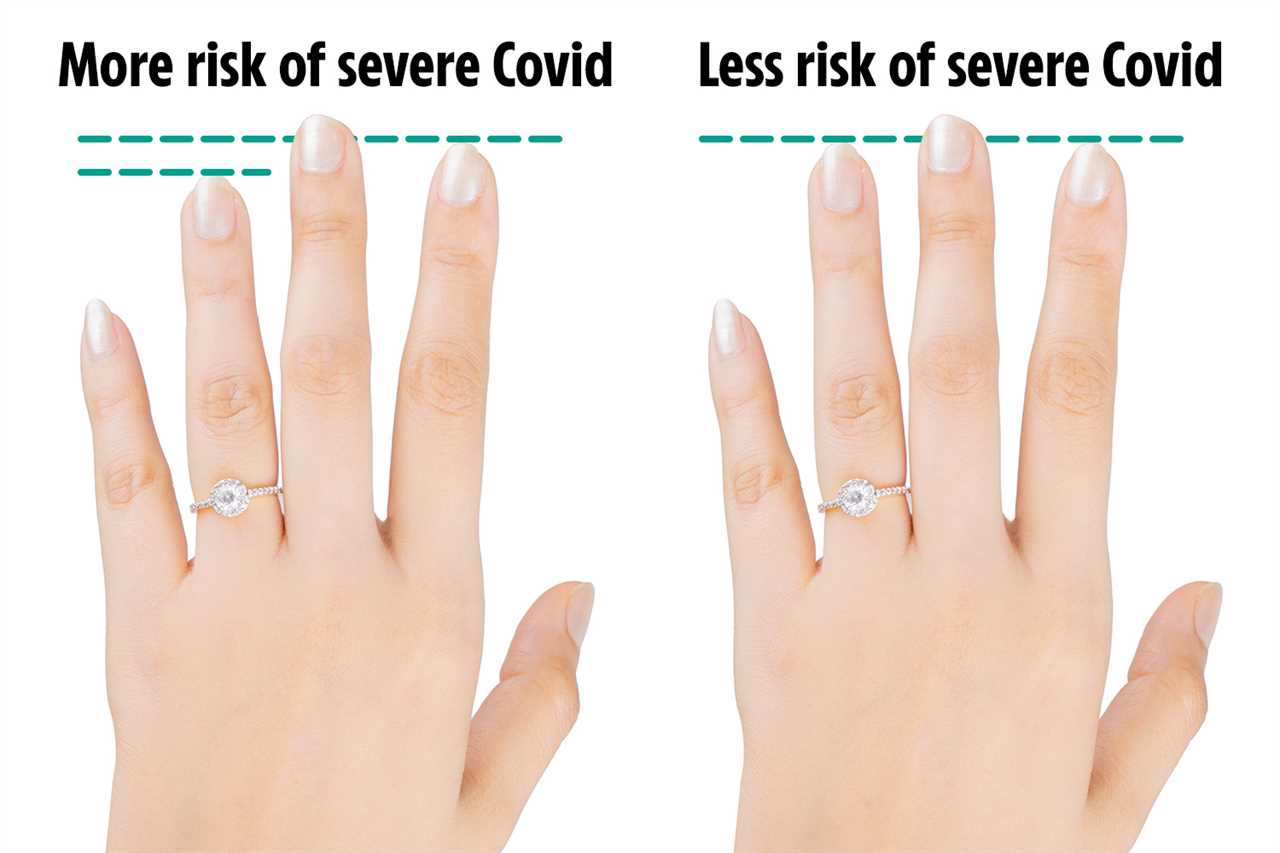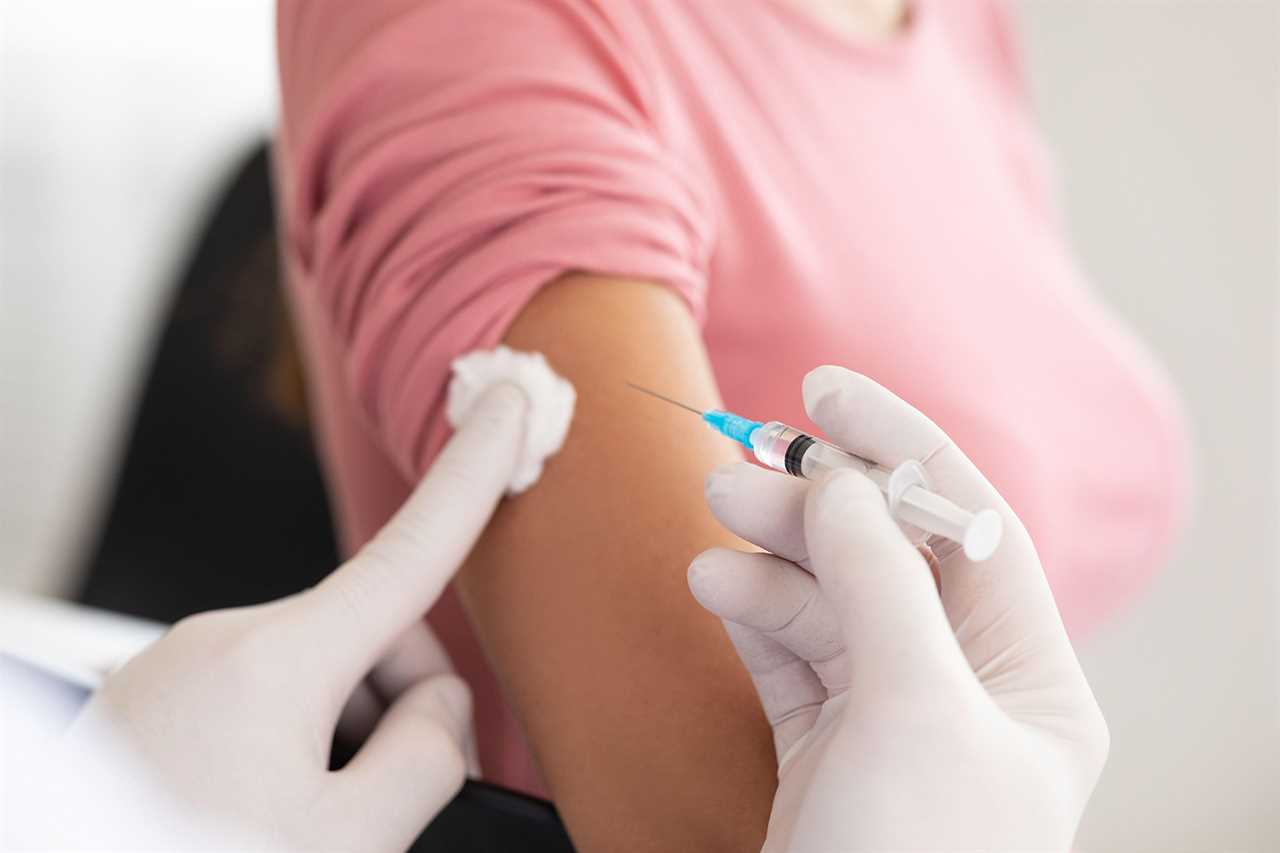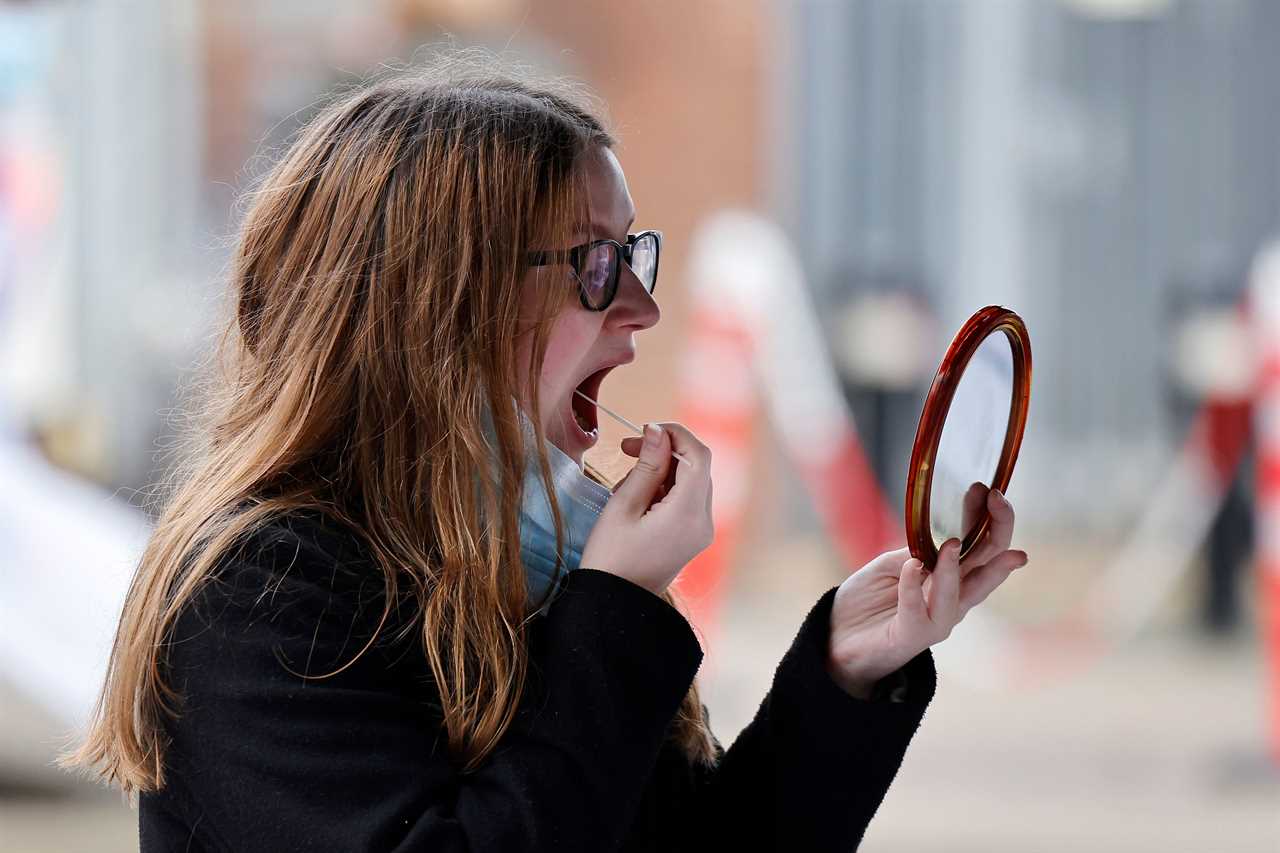LOOK at your hand – it may hold clues to how likely you are to get seriously sick with Covid.
Scientists have found finger length may determine Covid risk.

It is widely recognised that the length of your digits is influenced by exposure to testosterone while in the womb.
And studies have also linked this ratio to a host of other qualities, from penis size to personality traits and food preferences.
Could it be linked to risk of Covid, too?
With men shown to die at higher rates of Covid than women during the pandemic, scientists wanted to explore the link.
Researchers led by Swansea University compared the fingers of 54 people who had been hospitalised with Covid with 100 healthy people who never had the bug.
Read more on coronavirus
Digit ratios were measured – that is the difference in length between the 2nd (index finger), 3rd (middle finger), 4th (ring finger) and 5th (pinky finger) digits.
Some key differences were spotted.
Patients with “feminised” short little fingers relative to their other digits tend to experience severe Covid-19 symptoms.
Those with the largest difference in length between their pinky finger and other fingers tended to be more sick with Covid.
It was not clear from the paper what constitutes a “short” fifth finger, as everyone’s hand size is different.
But a simply way to define a short pinky, is one that does not reach the top joint of your ring finger.
Prof John Manning, the lead researcher, said: “’Feminised’ differences in digit ratios in hospitalised patients supports the view that individuals who have experienced low testosterone and/or high oestrogen are prone to severe expression of Covid-19.
“This may explain why the most at-risk group is elderly males.”
More importantly, patients with large right hand to left hand differences in ratios 2D:4D and 3D:5D – have the biggest risk of Covid hospitalisation.
Prof Manning added: “Our findings suggest that Covid-19 severity is related to low testosterone and possibly high oestrogen in both men and women.
“This is significant because if it is possible to identify more precisely who is likely to be prone severe Covid-19, this would help in targeting vaccination.”
The strongest factors tied to Covid severity are age, gender, and underlying health issues.
Prof Manning has been studying ring finger length since the early days of the pandemic.
Previously it’s been found that those with a long ring finger had higher levels of testosterone prenatally than those with a long index (pointing) finger.
Typically, men have longer ring fingers while women have longer index fingers, also a sign of higher oestrogen exposure.
Prof Manning theorised that men that bucked that trend were more likely to get sick with Covid because they had lower prenatal testosterone.
The hormone may produce more of a compound called ACE2, which helps the body to fight the virus.
Read More on Trending In The News
Prof Manning said in May 2020: “These concentrations are large enough to oppose the virus.
“Our findings may be men with long ring fingers will experience mild symptoms and could return to work.”











